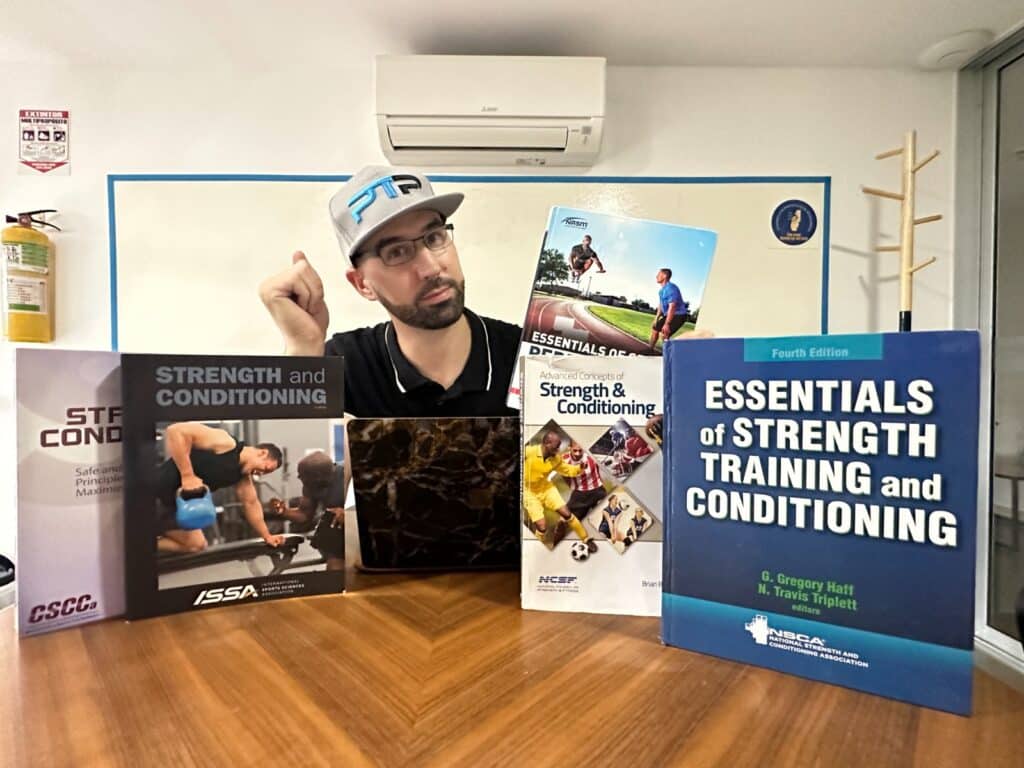
This review compares the top five best strength and conditioning coach certifications.
I base my review on studying for each strength and conditioning coach certification online, taking and passing each certification exam, and working in the industry as a strength coach using these certifications.
With over 10+ years of coaching athletes as a strength and conditioning coach, I can confidently say which strength and conditioning coach certifications are best and which are not.
Additionally, the PT Pioneer team includes many certified personal trainers and certified strength and conditioning specialists.
In this review, I’m going to compare the top five strength and conditioning certs that are the most sought-after in the fitness industry based on:
- Study materials for each strength and conditioning coach certification
- Strength and conditioning certification focus
- Industry recognition for each strength and conditioning certification
- Pricing and value of the strength and conditioning course
Cut your Strength and Conditioning Certification study time in half with premium study materials for the programs in this article.
Use the code PTPJULY to receive between 35% and 50% (depending on the program) off the Trainer Academy MVP Study System. Get the trial for any of their study systems here and check out my review for Trainer Academy here.
If you want a great career in the fitness industry without wasting a ton of time sorting things out, be sure to take the quiz to determine the best training certification for your career!
Without further delay – here are the 5 Best Strength and Conditioning Certifications!
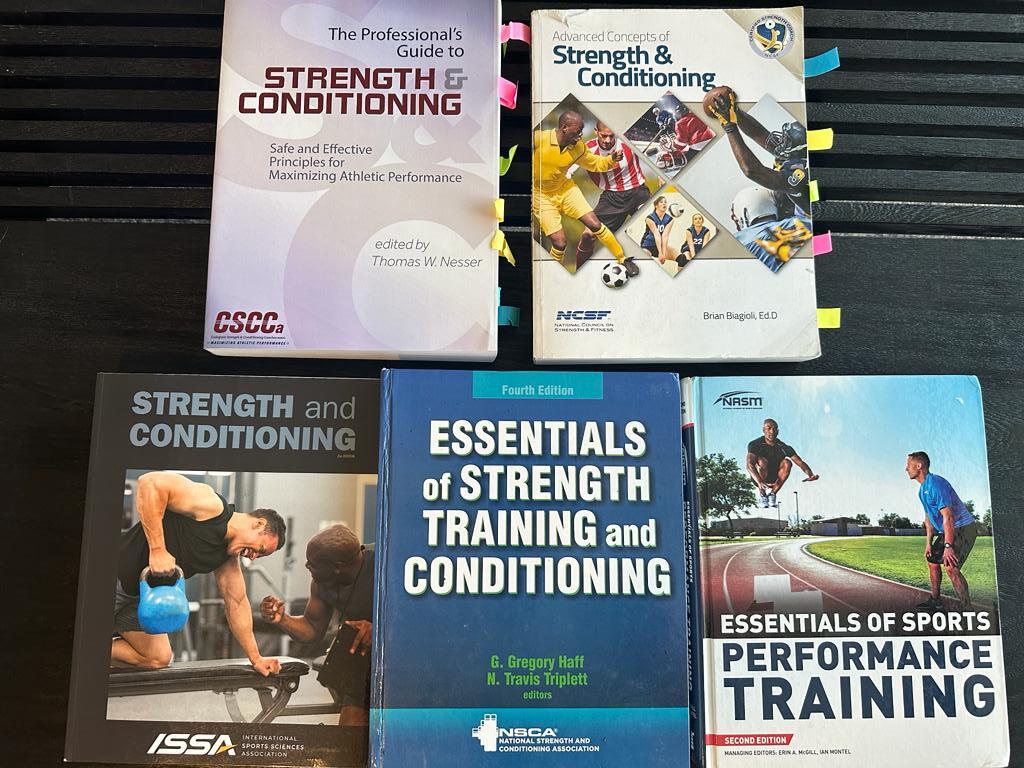
Our Top Picks
| CPT | CPT | Features | Price |
|---|---|---|---|
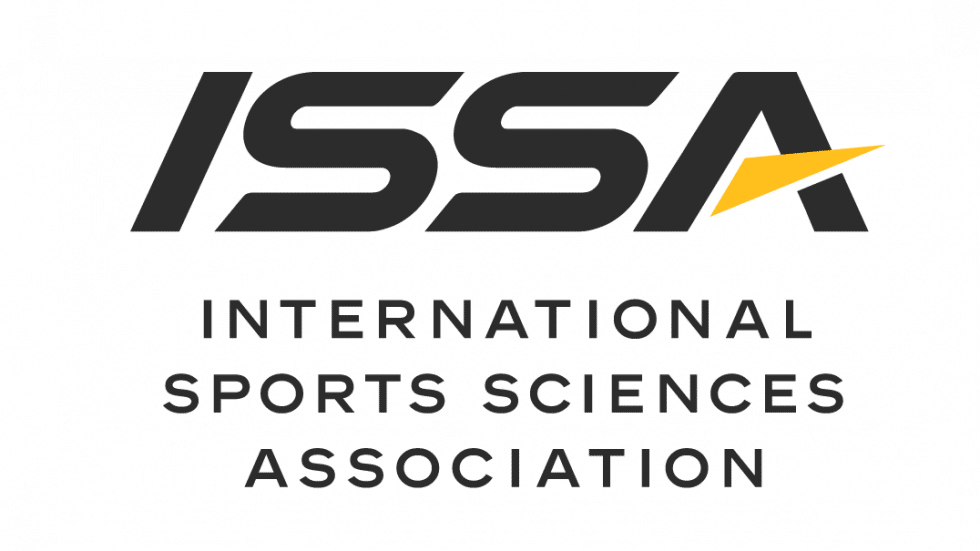 |
| Check ISSA Pricing | |
 |
| Check NSCA Pricing | |
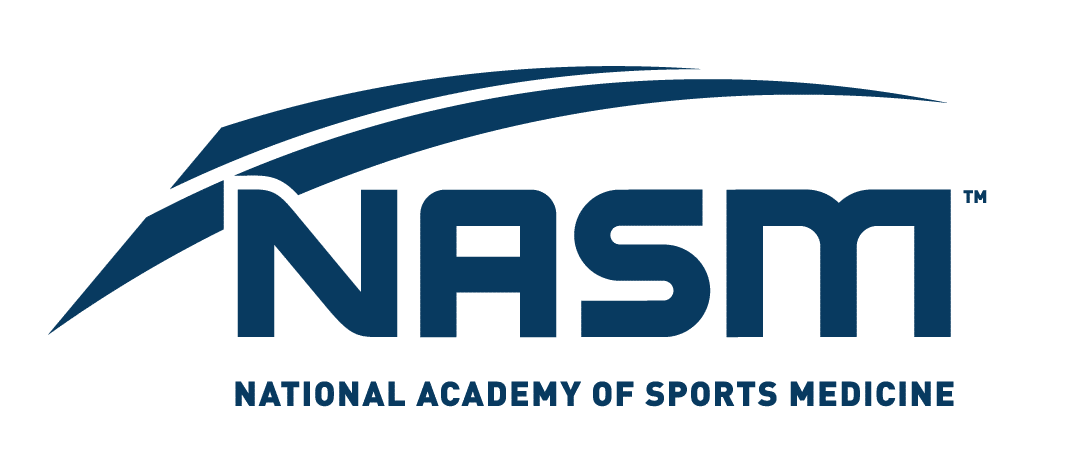 |
| Check NASM Pricing |
NSCA Certified Strength and Conditioning Specialist (CSCS)
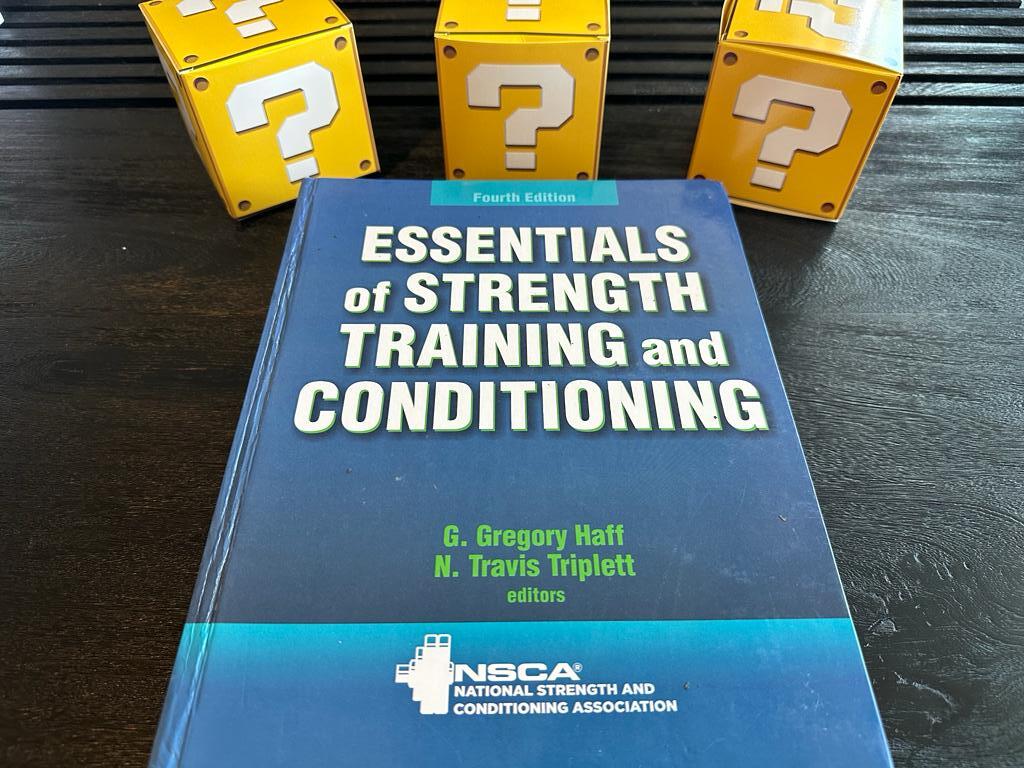
What is the NSCA CSCS certificate?
The National Strength and Conditioning Certification Certified Strength and Conditioning Specialist (NSCA-CSCS) is the industry-flagship Strength and Conditioning certification from the National Strength and Conditioning Association.
Many perceive this association’s certification as the gold standard for strength and conditioning specialist certificate providers. Whether you want a job at a normal physical fitness center, a private job doing athletic coaching, or even leading strength and conditioning classes, the National Strength and Conditioning Association’s certification is as legit as possible.
The NCCA accredits the CSCS certification.
NSCA credibility and reputation
The National Strength and Conditioning Association (NSCA) is the premier athletic strength and conditioning, offering several excellent certifications, such as the NSCA certified personal trainer program.
Overall, the NSCA is arguably the most respected organization in the strength and conditioning industry. The NSCA is non-profit and focuses heavily on scientific research and performance programming.
I consider the NSCA the most reputable in terms of its strength and conditioning-focused certifications.
CSCS certification pros and cons
- World-class exercise technique and program design
- Deep knowledge of exercise science
- Heavily respected across the fitness industry
- Very difficult exam relative to general fitness training needs
- High prerequisite requirements
CSCS costs and study materials
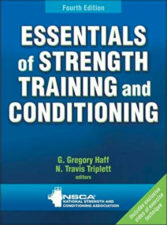
The CSCS certification cost depends on whether you have an NSCA membership. Having a membership drops the price considerably, so I recommend going with that route.
The combined cost of an NSCA membership plus the exam is lower than just buying the exam by itself without a membership. This does not include the Essentials of Strength Training 4ed textbook.
The exam cost for non-members is $475, but an NSCA membership brings that down to $340.
The NSCA membership is $130 annually and includes access to many resources, including the NSCA Journal of Strength and Conditioning.
This journal gives coaches access to top-notch publications in the field of strength and conditioning.
These costs do not include any CSCS-specific exam preparation.
You have the following options and prices for complete CSCS test prep from the NSCA.
CSCS Essentials Package – $249.40 (member), $302.40 (non-member)
- CSCS study guide
- 200 practice questions
- Essentials of Strength Training, 4th edition
CSCS Essential Plus Package – $463.50 (member), 526.50 (non-member)
- CSCS study guide
- 200 practice questions
- Essentials of Strength Training, 4th Edition, and Online Study Course
- Exercise Technique Manual, 4th Edition
CSCS Digital Package – $161.50 (member), $215.65 (non-member)
- CSCS Study Guide
- 200 Practice Questions
Regarding the CSCS study materials, the cheapest route that you can do is to purchase their main textbook, the Essentials of Strength Training and Conditioning.
This book costs around $70 or $80.
Overall it will cost you about $500 at the minimum to get certified with CSCS.
If you want to get all the study materials and not become a member, it will cost you around $900.
The slickest way to pass the CSCS is to purchase the membership, purchase the exam and the textbook, and then get the premium CSCS study materials from Trainer Academy, which are a fraction of the cost of the CSCS course while delivering even more value.
My PTP students report cutting their CSCS study time and effort in half with Trainer Academy.
Benefit from the Exam Pass Guarantee and Retake Fee Guarantee. Plus, take advantage of my current discount code PTPJULY for 35% off the MVP Program (Ends July 14th, 2025).
Try it out for free here to see if it’s right for you, or read my detailed review for further insights.
You can also study for the CSCS for free here on PT Pioneer with the free CSCS Study Guide and CSCS Practice Exam.
CSCS strength and conditioning certification course topics
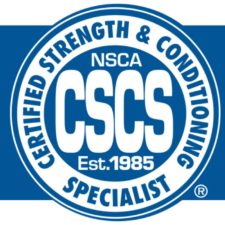
The CSCS covers an impressive amount of material you need to know as a strength and conditioning coach.
Topics break down into the following subjects over 24 chapters:
- Exercise science foundations
- Sports Psychology
- Nutrition
- Exercise technique
- Program design
- Organization and administration
- Testing, ongoing monitoring, and data evaluation
One of the major topic coverage points is exercise technique and programming. The technique ensures strong, trained, and untrained athletes keep their arms, legs, chest, hips, knees, and shoulders properly when executing movements with weights. Programming is necessary to determine how many sets and reps of everything you must assign in each workout.
Taking the CSCS certification exam
To be eligible to take the CSCS certification, you need to meet the following requirements:
- Have a valid CPR/AED certification
- Have a bachelor’s degree or higher
The bachelor’s degree does not need to be in an exercise science-related field.
The CSCS exam was by far the most difficult strength and conditioning certification exam I have taken.
It is split into two parts, consisting of 80 questions on scientific foundations and 110 questions on practical concepts, respectively.
You need to score a passing grade not just on both exams but also across all 7 subtopics contained in the exam.
The CSCS test is comprised of two different sections.
The scientific foundation’s portion and a practical/applied part.
Let’s break down both of these to see what they are all about.
Scientific Foundations
The scientific foundation section consists of 95 multiple-choice questions.
You have 1.5 hours to complete this portion of the exam.
You will be tested on your exercise physiology, anatomy, biomechanics, and nutrition knowledge.
The test is broken down like this.
- 44 questions related to exercise science
- 19 sports psychology questions
- 17 questions related to nutrition
- 15 non-scored questions (for research purposes)
Practical/Applied
The practical and applied section will test your knowledge of program design, evaluation, organization, testing, and exercise techniques.
Overall there are 125 multiple-choice questions and you are given 2.5 hours to complete this portion.
- 40 questions of exercise technique
- 38 questions of program design
- 12 questions regarding organization and administration
- 20 questions regarding testing and evaluation
- 15 questions that are not scored
Both tests are graded on a scaled score from 1 to 99.
You must score at least 70 in both sections to pass the CSCS.
The CSCS pass rate for 2022 was 38%.
Overall, this is one of the lowest pass rates in the entire industry.
If you fail to pass the test on your first try, the members’ retest fee is $340 (basically the full price).
If you only failed one section, the retest fee for one part is $250.
I, once again, recommend third-party study guides like the Trainer Academy CSCS MVP Program, including spaced-repetition flashcards, practice questions, and exam prep.
I passed on my first try after 3 months of CSCS exam prep, but I have to say honestly that several of the questions stumped me when I took the test.
NSCA CSCS continuing education, salary, and career prospects
The CSCS requires 6.0 units of CEUs every 3 years, making it the most rigorous recertification requirement out of all the major NCCA-accredited certifications.
Additionally, you must complete different categories of CEUs, including some in-person seminars.
The ZipRecruiter pegs the NSCA CSCS salary at $52,900 in the United States. However, this varies greatly from state to state and depends on the employment situation.
To put it mildly, any collegiate or even high school strength and conditioning coach career requires a CSCS.
You do not need a CSCS to coach clients privately. However, most professional strength and conditioning jobs require a CSCS.
ISSA Strength and Conditioning Coach Certification (SSC)
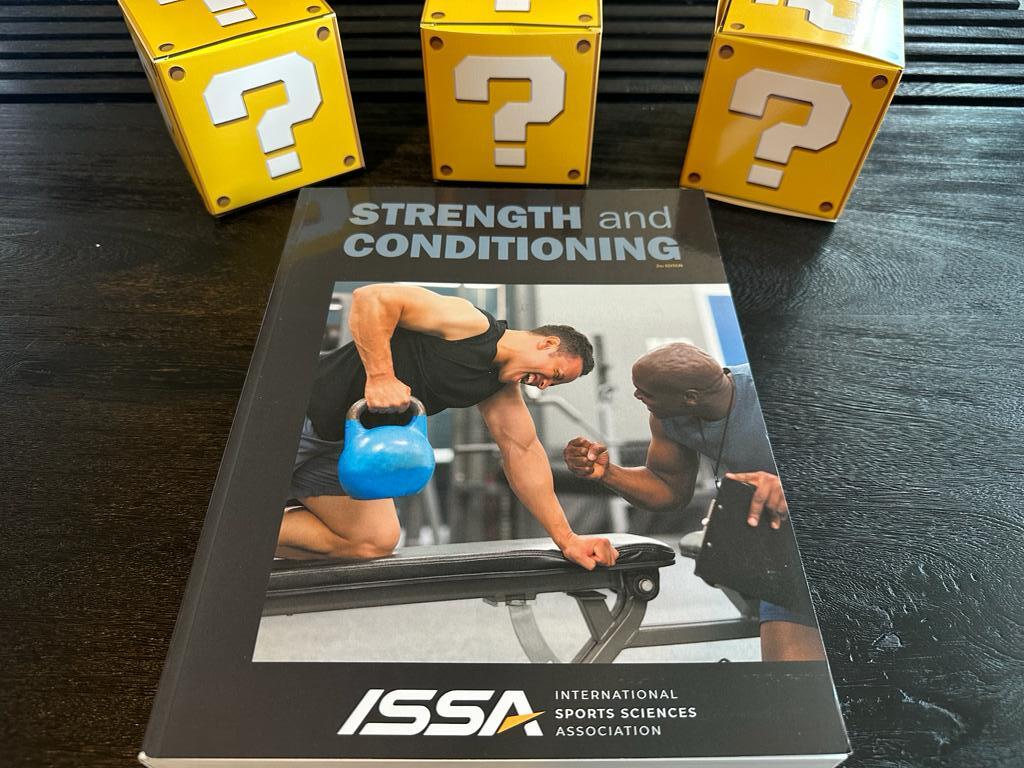
What is the ISSA Strength and Conditioning Certification?
The International Sports Sciences Association Strength and Conditioning Coach (ISSA-SCC) is a strength and conditioning certification for personal trainers working with athlete-clients to improve performance.
This is one of the few certifications that can be done online, making it very attractive versus other in-person options. A perk I like about ISSA is its program bundles.
You can include the ISSA Strength and Conditioning Certification with the ISSA Elite Trainer program, which is one of many steps I recommend to become a successful personal trainer.
This program has much more relaxed standards of typically rigorous strength and conditioning certifications. As one of the top CEU providers, the ISSA SSC is also a great option for recertifying your CPT.
That being said, the information that you will learn from the strength and conditioning certification is legit.
To obtain the ISSA strength and conditioning certification, you need to:
- Be at least 18 years old
- High school graduate or equivalent
- Have a valid CPR/AED certification
The ISSA strength and conditioning certification is accredited by the Distance Education Accrediting Commission (DEAC), although ISSA can also take an NCCA-approved exam.
ISSA credibility and reputation
The ISSA brand has garnered a positive reputation among employers and certified fitness professionals. ISSA has a longstanding presence in the fitness industry and a diverse array of fitness program offerings.
The NCCA grants accreditation to ISSA’s CPT and a select few other ISSA certifications, showcasing their superiority among certifying fitness organizations.
As someone who has worked in gym environments, I can attest that ISSA is a highly-regarded name among employers, who often seek out ISSA-certified individuals.
Additionally, I have known many professionals ranging from strength and conditioning coaches, personal trainers, pilates, Yoga, and hands-on bodyworkers such as massage therapists who pursued ISSA certifications and absolutely crushed it with their careers.
ISSA SCC certification pros and cons
- Can re-take the test for free
- Comprehensive easy-to-understand textbook
- Elite Trainer package offers the best value in the fitness industry
- Not as well known as NSCA CSCS
- Assessments and weightlifting coverage could be better
- More expensive by itself than other certs
ISSA Strength and Conditioning Certification costs and packages
The ISSA SCC certification only has a single package, costing between $499 and $699, depending on which package you purchase.
This package includes all of the materials you need to pass the ISSA strength coach exam.
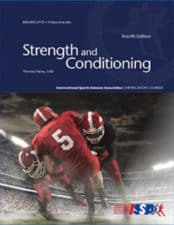
If you plan to make a career in the fitness industry and do not yet have your personal trainer certifications, I recommend checking out the ISSA Elite Trainer package. This includes three ISSA certifications at roughly 50 percent off, including the ISSA strength and conditioning certification.
Check out the current price for the ISSA SCC here.
Here are all the study materials you will receive with the SSC:
- A hard copy of the primary textbook, which is 615 pages
- A guided study workbook to help you along with the book
- 250 animated exercises online (3-D animation)
- Access to an online student forum
- Practice exams and section quizzes.
- Access to SCC-certified professionals for any questions you have
The ISSA SCC study materials are fantastic overall.
I like the online student forum and the ability to ask experts on concepts I struggled with.
ISSA Strength and Conditioning Certification Course Topics
The ISSA strength and conditioning certification covers the following topics across its 24 chapters.
- Introduction to Strength and Conditioning
- Nervous System
- Muscular System
- Skeletal System and Joint Actions
- Cardio-Respiratory and Support Systems
- Bioenergetics
- Biomechanics
- General Assessments
- Performance Assessments
- Principles of Program Design
- Flexibility
- Plyometric Exercises
- Core Exercises
- Lower-Body Exercises
- Upper-Body Exercises
- Power and Olympic-Style Weight Lifting
- Resistance Training Systems
- Applying Periodization
- Cardiorespiratory Programming
- Recovery and Injury Prevention
- Nutrition
- Supplementation
- Performance Psychology
- Professional Practice
The ISSA Strength and Conditioning Certification provides a comprehensive overview of the nervous, muscular, bone, and joint structures, respiratory, endocrine, and digestive systems. You will learn how to advance beginner and trained athletes using workouts with weights to build strong, healthy, and fit muscles.
The certification is easy to understand and the material is very visibly pleasing. The right-hand side of each page includes highlighted keywords to help readers refer to specific parts of the book.
I found the insertion, origin, and action charts for the muscular system pretty helpful for learning the various muscle actions that occur during movement. The flexibility chapter covers both stretching and recovery techniques like myofascial rolling, which may help improve performance and reduce injuries.
The program design chapter describes the details of goal setting and exercise training principles. There are some weaknesses in the assessments section, as there is only a basic postural assessment, gait assessment, squat and lunge, and only two cardiorespiratory assessments.
The core exercises chapter includes a variety of useful exercises organized by planes of motion. The periodization and programming planning chapters are well-written, including examples of full-body program examples, training splits, and loading parameters in well-organized charts to track goals and workouts.
ISSA takes a different approach towards cardiorespiratory programming than other certifications, using the ‘180 Formula’ to find your client’s maximum aerobic heart rate.
The recovery chapter includes information on different recovery modalities such as massage, contrast therapy, compression, and active recovery. I found this coverage super helpful since recovery is a massive component of proper strength and conditioning. Many other certifications do not cover many recovery modalities.
The nutrition and supplement chapters provide a solid overview of the basics, including legal performance supplements like creatine and proteins. The performance psychology chapter provides several tools for an athletic coach, including a growth mindset, sources of confidence and motivation, energy management, cueing skills, self-talk, and an attention mindset.
The professional practice section provides information on the roles needed as a strength and conditioning coach and how to prepare for a job interview and sell services as an aspiring coach.
Taking the ISSA Strength and Conditioning certification exam
The ISSA Strength and Conditioning Coach test is done entirely online.
The test is also open book, and you have unlimited time to answer the questions.
You will be asked questions about the following areas:
- Anatomy
- Fitness assessment
- Sport-specific training
- Sport psychology
- Physiology
- Nutrition
- Injury prevention for athletes
I could not find published pass rates for the ISSA certification.
ISSA strength coach continuing education, salary, and career prospects
You do not need to complete ISSA strength and conditioning continuing education, but you will earn CEU credits towards your NCCA recertification for approved certification programs.
There is no published data on the ISsA strength and conditioning salary.
However, the published average salary for a strength and conditioning coach in the US is $46,542 per year, which does not specify which certifications were included in the statistics. This is just a baseline.
Most top-level strength coaches make more. I’ve known experienced strength coaches at a high collegiate level often make more than $500,000 per year.
NCSF Certified Strength Coach (CSC)
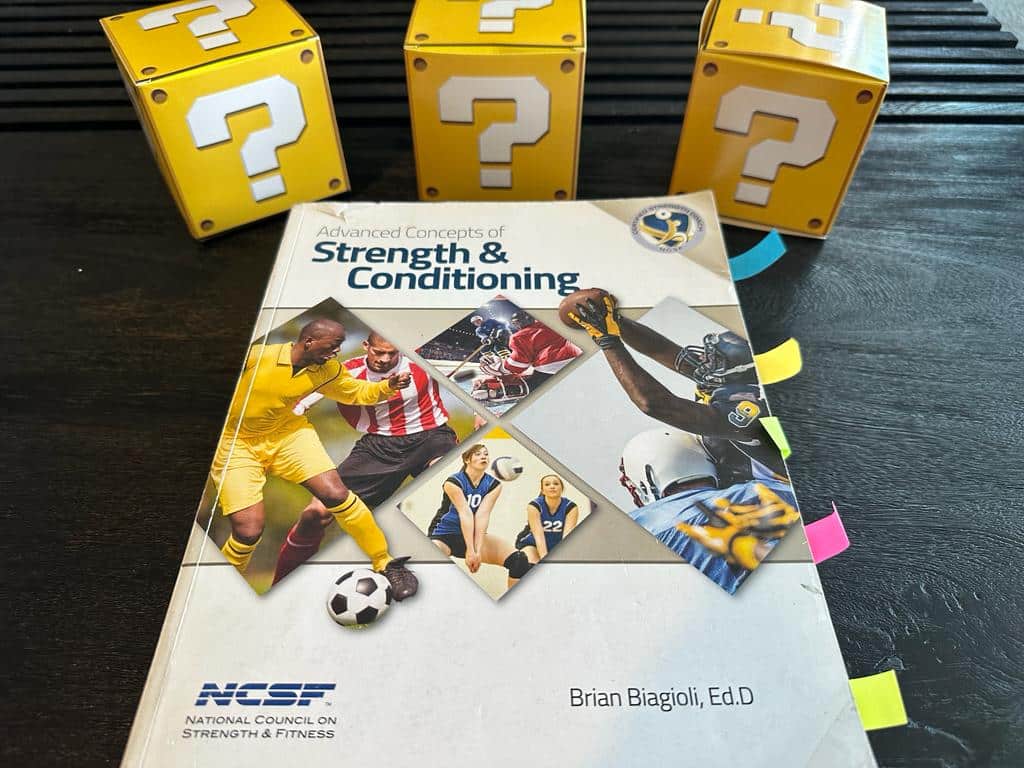
What is the NCSF Certified Strength Coach Certification?
The National Council on Strength and Fitness Certified Strength Coach (NCSF-CSC) certification is an NCCA-accredited strength and conditioning certification that covers a wide range of cutting-edge topics needed for a modern strength coach career.
The NCSF-certified strength coach positions itself as an alternative to the famed CSCS for candidates who do not have a bachelor’s degree.
The NCSF CSC is itself an NCCA-accredited certification, unlike the ISSA SSC and NASM PES. This means it has been through a more rigorous examination by subject matter experts.
The NCSF CSC also has a much more difficult exam than the other CSCS alternatives.
I would say that if you do not have a college degree but want to match the reputation of the CSCS, consider looking into the NCSF CSC.
Note that without a college degree, you will need an NCSF CPT certification or another NCCA-accredited personal trainer certification.
To be eligible for the NCSF CSC, you will need the following:
- To be at least 18 years old.
- Have a high school diploma or equivalent
- Hold a current NCCA-accredited CPT certification or college degree
NCSF’s credibility and reputation
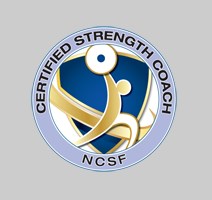
The NCSF is a board-member driven certifying organization that offers the NCSF personal trainer certification and NCSF Sports Nutrition Certification, in addition to the NCSF certified strength coach certification.
The NCSF board consists of experts in the field of fitness and health, including physicians, professors, and experienced fitness professionals.
Although the NCSF is newer than NASM, ISSA, or the NSCA, it has established itself as a solid source of science-backed fitness certifications with respectably difficult exams.
NCSF CSC certification pros and cons
- Cutting-edge training techniques
- Outstanding online portal and study materials
- NCCA accredited
- Less well-known
- Expensive packages
NCSF strength coach certification cost and study materials
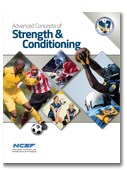
The NCSF CSC is a mid-to-high priced program for getting a strength and conditioning certification.
However, you get exceptional study materials and curriculum, so the value remains.
Pricing breaks down as follows:
- Home Study – $799
- Home Study Plus – $899
- Workshop – $899
- Workshop Plus – $999
The NCSF CSC pricing is quite attractive, especially if you consider the value of the study materials.
NCSF provides pretty good study materials.
They have a robust offering of different materials to prepare you for the impending exam.
Each package has a varying amount of materials and is priced accordingly.
In many cases, the amount of material included in the bottom tier options won’t satisfy the first-time candidate’s needs, so you’re forced to buy a more expensive package anyway.
With NCSF, even the lowest tier package includes all essential materials, so that’s already a big win in my books.
The all-inclusive Workshop + package includes:
- Advanced Concepts of Strength & Conditioning Textbook
- Advanced Concepts of Strength & Conditioning (Digital Edition)
- Instructional Videos
- Lesson Notes
- Questions and Answers
- Review Quizzes
- Online Certified Strength Coach Practice Exam
- Certified Strength Coach Reference Guide
- 8 NCSF CEUs (Meets Ethics Requirement)
- Payment Plan Option
- 2-days of workshop instruction (16 hours)
- Membership (One Year)
- NCSF Certified Strength Coach Exam
The other lower-tier packages don’t deviate much from what’s offered here, and the price makes them more attractive, which I’ll get into later.
NCSF CSC Certification Course Topics
The field of strength and conditioning is growing rapidly in educational and professional settings, with coaches aiming to improve athlete performance. The NCSF-CSC textbook is based on modern, evidence-based information that applies to personal trainers and college strength coaches.
The NCSF course is divided into nine sections, covering topics such as performance assessment and evaluation, biomechanics, metabolism, nutrition, and training techniques.
The course also includes advanced programming, injury prevention, and an exercise video library. I found this coverage exceptional regarding its utility for strength and conditioning.
The program’s strongest section is the program design and exercise technique coverage, which includes Olympic lifting techniques and considerations for programming.
Olympic lifts, in particular, are excellent tools for improving athletic performance, so covering this topic is very helpful.
However, it does not include business skills or special population training. With this said, I don’t necessarily recommend it for those wanting to start their strength and conditioning business or work with clients with special needs.
Overall, the NCSF-CSC program is an excellent resource for those looking to improve their knowledge of human performance when coaching athletes.
Taking the NCSF Certified Strength Coach Exam
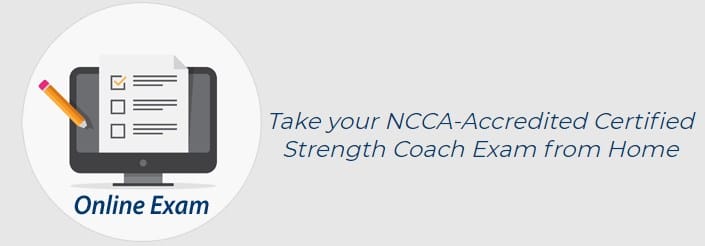
The NCSF CSC exam is administered either in a real-world proctored testing venue or online via a live remote proctor.
The NCSF Certified Strength Coach exam consists of 150 multiple choice questions and runs for 3 hours.
The exam is broken down as follows so you have an idea of where to focus:
- Functional Anatomy and Biomechanics 15%
- Sport Metabolism 10%
- Performance Assessment and Evaluation 13%
- Nutrition and Ergogenic Aids 8%
- Training Techniques for Athletic Performance 20%
- Advanced Programming for Sport 20%
- Injury Prevention and Return to Competition 9%
- Professionalism and Risk Management 5%
You will need a minimum score of 70% to certify successfully.
If you don’t pass the first time, you must consider retaking the exam.
To retake the NCSF CSC, a fee of $99 and a waiting period of at least 30 days are required. This is standard for retake fees and cheaper than many other certification retake fees.
NCSF strength coach continuing education, salary, and career prospects
To recertify your NCSF CSC credential, you must submit 10 CEUs every two years to keep your cert current and relevant.
The typical CEU breakdown for NCSF includes 7.0 CEUs from approved subject matter providers, 2.0 CEUs for recertifying CPR, and 1 CEU from the required Ethics and Professional Practice.
As with any strength coach certification salary discussion, it’s tough to peg an exact number for each certification. I would guess that the NCSF is similar to the CSCS and in the ballpark of $50,000 per year range regarding average salary.
NASM Performance Enhancement Specialist Certification (PES)
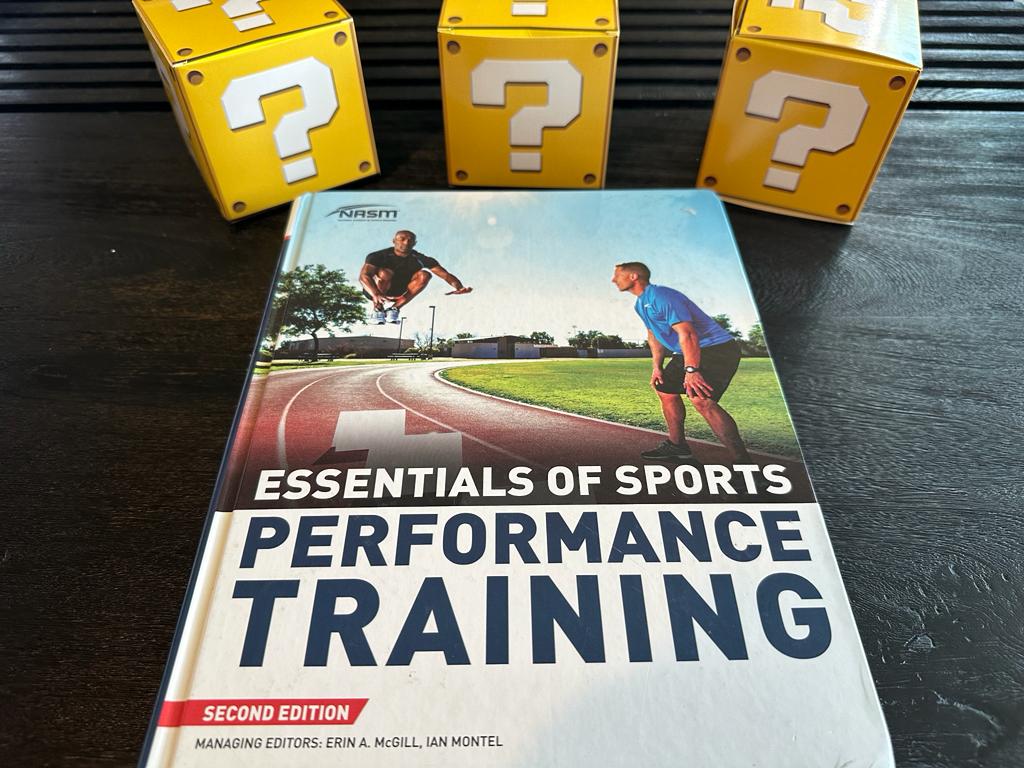
What is the NASM Performance Enhancement Specialist Certification?
NASM, short for the National Academy of Sports Medicine, is a certification body operating within the health and fitness industry.
Founded in 1987, it has since established itself as a leading authority and educational institution in the fitness field, providing what is widely regarded as one of the best personal trainer certification programs.
With its widespread recognition and influence, NASM is often referenced as the most prevalent certifying agency based on a range of relevant metrics. The curriculum excels at the development of agility levels in clients. It is also one of the few strength and conditioning credentials that allows you to earn the certification without prerequisites such as a bachelor’s degree.
Its certification is widely considered a benchmark for excellence, carrying a global reputation for quality and standardization. Additionally, you can land a position in various gyms with the NASM PES.
NASM credibility and reputation
The National Academy of Sports Medicine (NASM) is a well-known fitness certification organization operating within the health and fitness industry.
Founded in 1987, NASM has since established itself as a leading authority and educational institution in the field of fitness.
NASM provides what is widely regarded as one of the best personal trainer certification programs.
With its widespread recognition and influence, NASM is often referenced as the most prevalent certifying agency based on a range of relevant metrics.
Its certification is widely considered a benchmark for excellence, carrying a global reputation for quality and standardization.
NASM PES certification pros and cons
- Certified for life, no recertification required
- Well priced for a NASM certification
- Great entry point for athletic trainers or conditioning specialists
- Not as well recognized as NSCA CSCS
- Prerequisites can be intimidating, although not required
- Very little focus on other population groups outside high-performance athletes
NASM PES costs and study materials
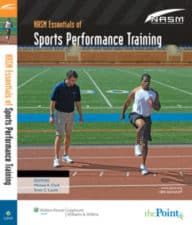
The performance enhancement specialist has three packages available on the NASM website.
Here are the three prices for the packages.
- $549 for the Self-Study Package
- $699 for the Premium Self-Study Package
Here is what they offer regarding the guided study:
- Advanced Program in Performance Exercise
- 100% Online & Self-Paced Program
- State-of-the-Art Digital Learning Platform
- 44 High-Quality Videos Across 16 In-Depth Chapters
- 35 Lecture Videos and 34 Demo Videos
- Exercise Library with 64 Videos
- 1.9 NASM CEUs
- NASM PES Digital Textbook
- 2 Online Practice Exams and PES Final Exam
- Syllabus and Study Guide
- Application Videos
- Lecture Videos
- Exercise Libraries
- Module Quizzes
- Certificate Upon Passing Exam
- 1 Year Access
I like how the PES offers tons of interactive study materials since all of us learn differently.
I also highly recommend the Trainer Academy NASM PES MVP Study Package. These materials can cut your study time by up to 50 percent, which is a major time saver.
Benefit from the Exam Pass Guarantee and Retake Fee Guarantee. Plus, take advantage of my current discount code PTPJULY for 50% off the MVP Program (Ends July 14th, 2025).
Try it out for free here to see if it’s right for you, or read my detailed review for further insights.
You can also start studying for free with the NASM PES study guide from PT Pioneer.
NASM Performance Enhancement Specialist Certification Course Topics
The NASM PES curriculum addresses the crucial topics I have continually used throughout my strength and conditioning coach career. The curriculum provides valuable insights into exercise science foundations, nutrition coaching, behavioral coaching, client health and movement assessment, fitness assessments, resistance training, aerobic fitness training, and special populations training.
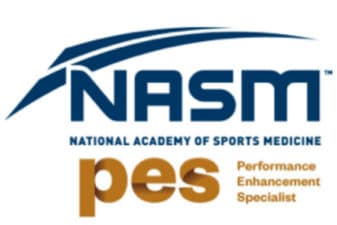
I’ve seen the importance of developing a deep understanding of exercise science throughout my career. This is especially needed if you coach athletes and push their physical limits consistently, and is essential for effective coaching.
The NASM Performance Enhancement Specialist curriculum does an excellent job of presenting exercise science principles and functional anatomy in a performance enhancement context.
Nutrition is another key component of maximizing sports performance. Thankfully, the NASM Performance Enhancement Specialist offers a solid foundation in performance nutrition.
However, I believe the course could focus more on results-driven coaching practices. Behavioral coaching is crucial for athletes dealing with the pressures of professional sports.
The NASM PES also offers a comprehensive approach to various aspects of mental conditioning, including concentration, motivation, stress management, and leadership skills.
The scope of this section is a bit beyond other certifications, which do not always discuss the mental toughness aspects of being a great athlete.
Before training clients, it’s essential to assess their health and movement.
The NASM PES covers client health screening and movement assessment in Chapter 3, although I would have preferred separate chapters for each topic.
The curriculum also delves into resistance training concepts, emphasizing the importance of understanding when and how to apply resistance training for high-level athletes.
The course also highlights aerobic fitness training, addressing aerobic and anaerobic systems and their response to different training stimuli.
While NASM PES focuses primarily on high-performance athletes as a special population, I think the course could benefit from more emphasis on other special populations, such as youth training and coaching athletes with various disabilities.
I’ve encountered many clients with special considerations, including high level athletes, so this topic is definitely needed.
In summary, the NASM PES curriculum offers valuable insights into exercise science, nutrition, behavioral coaching, and training principles for optimal performance enhancement. It is weaker in special populations coaching.
Despite some minor shortcomings, the course provides a solid foundation for fitness professionals aiming to excel in the industry.
Taking the NASM PES exam
The NASM PES exam will test you in five separate knowledge sections.
You will be tested on exercise assessment, applied and basic sciences, exercise technique, nutrition, and program design.
The test happens online and contains 100 multiple-choice questions. Like the CSCS certification, the PES is graded on a scale, and you must score 70% to pass.
NASM gives you 90 minutes to complete all 100 questions.
NASM strength coach continuing education, salary, and career prospects
The NASM Performance Enhancement Specialist does not require continuing education to maintain. On the contrary, it provides CEUs toward your NASM CPT. Note that you do not need a NASM CPT to take the PES, although it is recommended
According to ZipRecruiter, a performance enhancement specialist can make between $23,300 and $122,00 annually. The average falls on the lower side at 57,680 per year. Most make slightly less, however. Note that this data does not specify which certifications lead to which salary range.
CSCCa Strength and Conditioning Coach Certified Certification (SCCC)
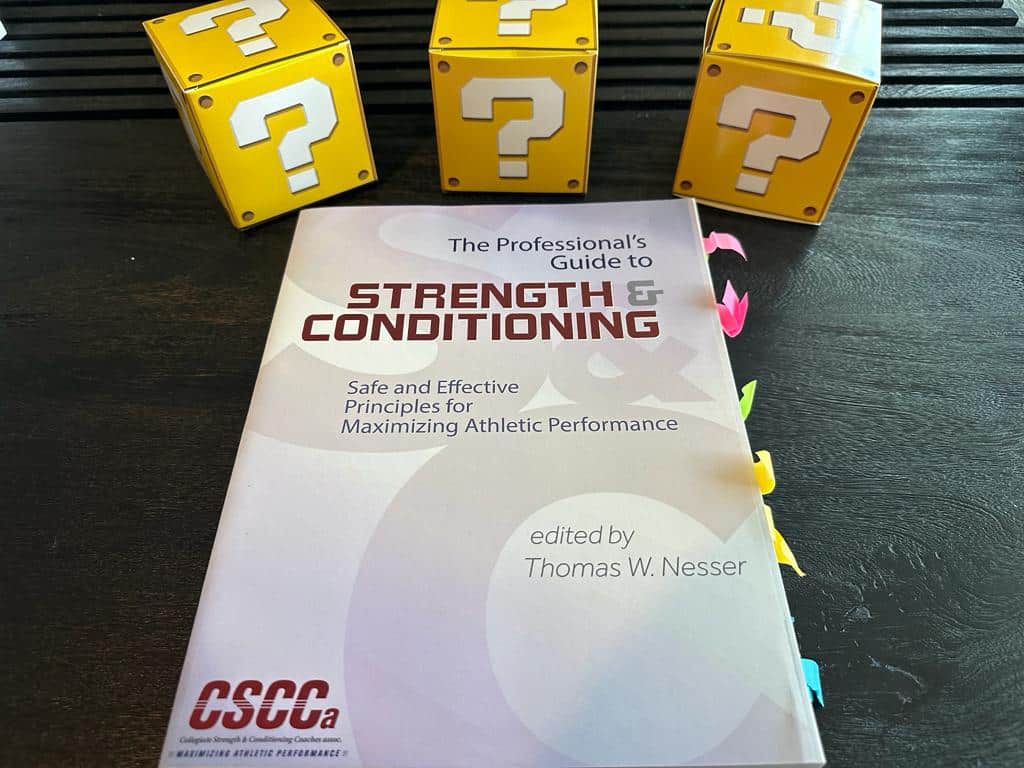
What is the CSCCa Strength and Conditioning Coach Certified Certification?
The Strength and Conditioning Coach Certified certification (SCCC) from the Collegiate Strength and Conditioning Coaches Association is a very prestigious strength and conditioning certification.
This certification is by far the most difficult certification to obtain out of all four on this list. In fact, by the time you are in the pipeline for the CSCCa SCCC, you will already be well into your career.
Part of the SCCC requires are completion of a 640 hour internship, meaning there are really no “shortcuts” to this certification.
Around 200 certification candidates sign up for and take the annual SCCC test. There is a single testing date at the CSCCa testing center, unlike all the other certifications in this article that are either online or taken at any testing center throughout the year. However, the rigorous exam is worth giving the opportunities available on everything from Elite Coaching to collegiate performance.
The requirements for the SCCC are:
- You must complete an internship with a CSCCa-approved mentor for 640 hours.
- You must be CPR/AED certified and valid
- Must hold a bachelor’s degree
- Must currently hold a general CPT certification.
Like the CSCS and NCSF-CSC, the SCCC is an NCCA-accredited certification.
CSCCa credibility and reputation
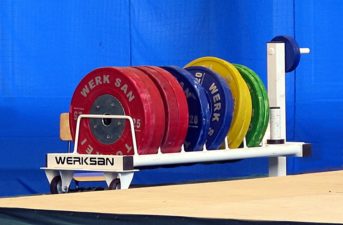
The CSCCa is arguably the industry’s most respected strength and conditioning certification organization.
While the NSCA-CSCS has tons of respect, the SCCC is in a league of its own due to its incredibly difficult exam and rigorous internship requirements.
However, this also makes it out of reach for most aspiring strength coaches entering the industry. With that said, if you are on track to get your SCCC, you are past the point of simply looking for a personal trainer job at a gym.
CSCCa SCCC certification pros and cons
- Highly respected
- Hands-on training
- Rigorous internship requirement
- Extremely difficult exam
CSCCa SCCC certification costs and study materials
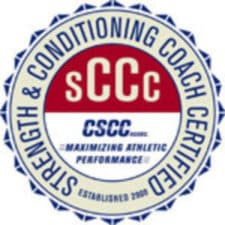
Like the CSCS certification, the SCCC certification depends on whether you are a member of the CSCCa.
The cost for the certification for members is $360, and for nonmembers is $470.
The yearly membership with the CSCCa has two options.
For students, it costs $55 a year, and for full-time coaches, it costs $110 a year.
Whichever option you choose, it will cost around $500 to get the SCCC certification.
If you end up purchasing each of the recommended study textbooks that the SCCC recommends, you will be spending approximately another $500 on those books along.
Most people pursuing this credential are already spending way more than this since it’s only open to full-time university strength and conditioning coaches and students pursuing this career.
The SCCC exam is tough to prepare for.
This is because they do not have their specific study materials for the tests.
Most of your learning will come from the 640 required internship hours with a mentor.
This makes studying for the SCCC even harder.
Here is the list of recommended study materials that they recommend for you:
- Nesser, T.W. (Ed.). (2019). The Professional’s Guide to Strength and Conditioning: Safe and Effective Principles for Maximizing Athletic Performance. Provo, UT: BYU Academic Publishing. Click here to order this textbook which the CSCCa developed
- National Strength & Conditioning Association. 2016. Essentials of Strength Training and Conditioning, 4th ed., Haff, G. Gregory, and Triplett, N. Travis (eds.). Champaign, IL: Human Kinetics. Click here
- Powers, S.K.; Howley, E.T. 2021. Exercise Physiology: Theory and Application to Fitness and Performance, 11th ed. New York, NY: McGraw-Hill Companies, Inc. Click here.
- Fleck, S. J., and Kraemer, W. J. 2014. Designing Resistance Training Programs, 4th ed. Champaign, IL: Human Kinetics. Click here
They even include (bolded above) the primary textbook for the CSCS as an approved study material.
The pure volume of books and pages that they recommend you study is overwhelming.
These are all complete textbooks, for the most part.
They also have some recommended manuals, articles, and videos to aid your study process.
Here is the link to their full study resource suggestions.
CSCCa Strength and Conditioning Coach Certified Certification Course Topics
The CSCCa covers so much information that it does not even have a single unified course. Most of the learning will occur across the 640 hour internship. The curriculum study recommendations include the array of textbooks mentioned above.
Taking the CSCCa SCCC exam
There are two separate sections to the SCCC test.
There are a written examination and a practical exam.
Let’s talk about both of these.
SCCC Written exam
The written exam will test you on multiple areas of exercise science such as:
- muscle physiology
- cardiorespiratory system
- biomechanics
- adaptations to training
- program design
- exercise technique
- speed/plyometric training
- flexibility training
- nutrition
- weight management
- goal setting and much more
SCCC Practical exam
The practical exam is performed in front of the handle of SCCC-certified professionals.
Before taking the practical exam, you must submit a one-week training program for a particular sport as if you were handing this program over to an athlete.
The practical exam will be performed in front of the handle of SCCC-certified professionals.
You have to demonstrate personally:
- Strength and conditioning techniques and skills
- Orally demonstrate knowledge of strength and conditioning
Individuals also have to defend the one-week program they have designed for their imaginary athletics.
You must pass the written and practical exams to pass the SCCC certification.
You are only given a pass or fail grade.
The overall passing rate for the written exam was 64.34% as of 2021.
CSCCa strength coach continuing education, salary, and career prospects
The CSCCa has a hefty recertification requirement of 45 hours every 3 years. They recommend completing 15 hours per academy year.
Salary-wise, you have access to higher level jobs as a CSCCa and are also more likely to be considered for top-tier positions. With that said, I would peg the CSCCa salary closer to $60-90k per year instead of the typical $40-50k per year from the other certifications.
Career-wise, if you have your CSCCa-SCCC, you are set for a great, successful career in strength and conditioning.
The recognition of each strength and conditioning certification online
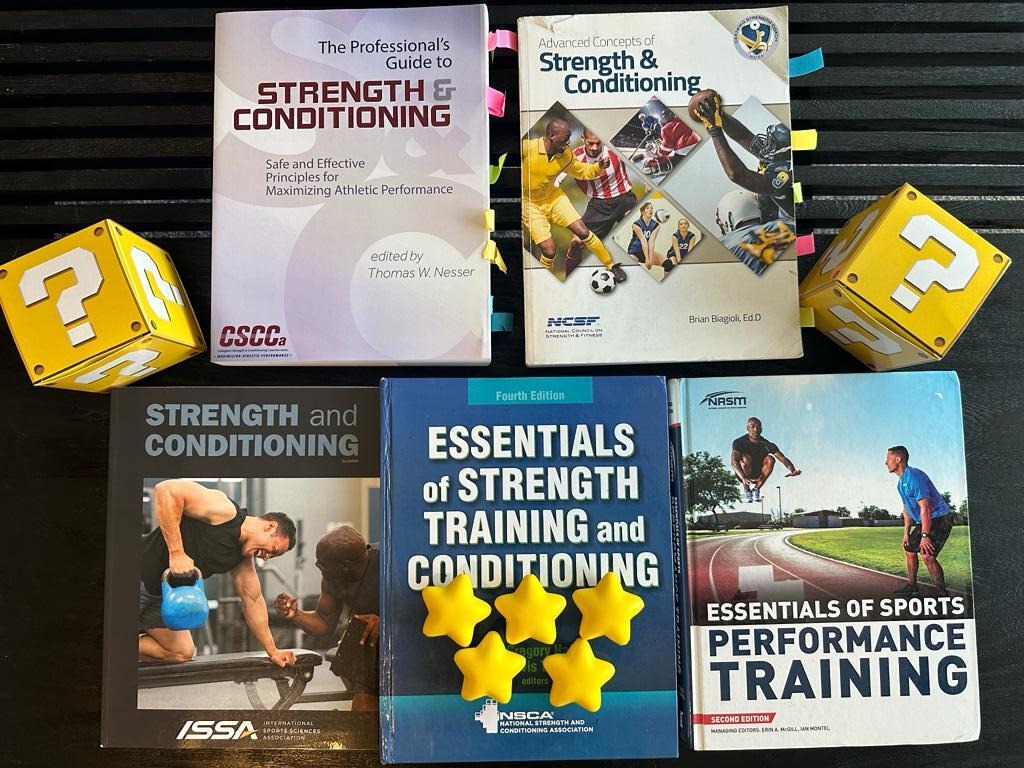
Acceptance and popularity for each of the strength and conditioning certifications vary and depend on who the employer is.
If you work for a collegiate or professional sports team, the CSCS or SCCC are the main certifications you should consider.
If you want to work for yourself or in a standard gym setting, I recommend the ISSA SCC or the NASM PES. The reason is that they mesh well with the personal training certifications offered by the respective organizations.
If you are going for a career track in fitness, I highly recommend the ISSA Elite Trainer or the NASM Elite Trainer packages.
You get way more bang for your buck when you bundle these amazing certifications.
Plus, you take care of your CPT continuing education by adding the strength and conditioning certification.
If you want an alternative certification with an excellent curriculum and materials and a more respectable exam, consider the NCSF Certified Strength Coach certification.
You can check job boards for personal training employment to get more insight into where these training programs are accepted.
Eligibilities for each Strength and Conditioning Certification
All of these strength and conditioning certifications require a CPR/AED certification.
In the case of the NCSF CSC, you need an NCCA accredited fitness certification or a bachelor’s degree. In the case of the NSCA CSCS, you need a bachelor’s degree.
In the case of the CSCCa-SCCC, you need a college degree and a very formidable internship.
Finally, the NASM PES and ISSA SCC do not require a prior certification, although it is strongly recommended.
Top Strength and Conditioning Coach Certifications FAQ (Frequently Asked Questions)
What are the top strength and conditioning certifications?
What are strength and conditioning exercises?
How difficult is the CSCS test?
Where does a strength and conditioning specialist work?
What is the cost of strength and conditioning certifications?
What are the prerequisites to becoming a strength and conditioning coach?
Are there study materials and practice tests for the CSC tests?
What is SCCC?
Do I need a bachelor’s degree to become a Strength and Conditioning coach?
Which is the best online strength and conditioning program?
References
- Become a Certified Strength & Conditioning Specialist | NSCA. https://www.nsca.com/certification/cscs/.
- Cscs Prerequisites. https://www.nsca.com/certification/cscs/cscs-exam-prerequisites/.
- Stay Certified | Nsca. https://www.nsca.com/certification/recertification/.
- “Performance Enhancement Specialist.” NASM, https://www.nasm.org/continuing-education/fitness-specializations/performance-enhancement-specialist.
- NASM PES Practice Test – NASM PES Study Materials | Trainer Academy. https://traineracademy.org/nasm-pes/.
- “Performance Enhancement Specialist Salary.” Ziprecruiter, Ziprecruiter, 13 Apr. 2023, https://www.ziprecruiter.com/Salaries/Performance-Enhancement-Specialist-Salary.
- Study Resources. https://www.cscca.org/certification/sccc/resources.
- Personal Trainer. https://www.ncsf.org/personal-trainer/.
- Strength & Conditioning Certification Online | ISSA. https://www.issaonline.com/certification/strength-and-conditioning-certification.
- NSCA CSCS Practice Exam – NSCA CSCS Study Guide | Trainer Academy. https://traineracademy.org/nsca-cscs-study-system/.
- Accreditation. https://www.ncsf.org/about/accreditation.
- “Personal Trainer Accreditation.” IHRSA, https://www.ihrsa.org/industry-issues/personal-trainer-accreditation/.

 Have a question?
Have a question? 
Course
Hey I am looking to get a real decent cert. in youth sports and development.
I had been talking to Chris bayard from overtime athlete but idk much about him and can’t find much as well.
Thanks
Steve
Hey Steve, the certifications discussed in this article do not specifically focus on youth sports development, and I can only recommend some of the specialization courses from the likes of NASM and ISSA. These can help point you in the right direction. But make sure to search the web for more youth-sports-related options.
Hello! I’m interested in the NASM-PES cert, but I don’t have a current CPT. After speaking with the NASM rep, they suggested getting the CPT first since that’s NCCA accredited the the PES alone is not. Do you think gyms will still accept the PES on its own?
Thank you!
Hey Joe, I definitely agree with the rep that a personal training certification is recommended first, but the PES is still a quality certification with some great teachings. It is just more often used to specialize and expand on the teachings of their CPT.
Tyler – is the PES considered to be a “strength coach” certification?
Hey Jenn, the NASM PES is in the same category as the other strength and conditioning certifications. It is the NASM S&C specialization. It is likely best when added to an NASM CPT certification, as opposed to used as a stand-alone cert.
what is your opinion about EXOS performance specialist course certification , is it well accredited & is it good to start with?
Hey, I don’t have much experience with the EXOS Performance Specialist course, but it does appear to be a solid and reputable course for those in the fitness industry to pursue.
What are your thoughts on the ACE strength and conditioning cert?
Hey Dylan, ACE is a great certification organization, but their strength and conditioning certification is not as in-depth and reputable as some of the others on this page, especially the gold standard NSCA CSCS.
Is the ISSA Strength and Cond exam simply an online test?
I have seen various video posts from people referring to the video portion of their exam. Can you clarify this?
Yes you would take the final exam online, they do require though that you submit a video portion to show that you have learned the material. But the multiple choice section itself is online.
hey,
I wanted to ask, Are CSCS and PES certification are available in India? Or they only provide certification for United States.
I know that on the National Academy of sports medicine website as well as the NSCA site they will list different testing locations. But for now the National Academy of sports medicine is allowing online test-taking. Something to look into.
I definitely think that you should Edit the ISSA SSC section cause now they have a new study book for this certification and they are accredited by the NCCA for 5 course i think
Thanks for this correction, I definitely need to update my articles. Issa is now accredited by the NCCA. Thanks for pointing this out!
I appreciate this article comparing the certs! What are your thoughts on the CFSC (Certified Functional Strength Coach) from Mike Boyle???
Hey there, I have heard the certification but honestly don’t know that much about it. Definitely need to look into it so I can create a full in-depth review.
I am a physical education instructor at a high school. I am looking to revamp the weight training curriculum and just want to make sure I am as knowledgeable as possible. Would the ISSA be suitable for this?
I only ask as I like the idea of a lot of online materials to prepare for the examination.
I definitely think that the international sports Sciences Association certification is good for what you were trying to do. Especially if you combine it with their strength and conditioning certification.
Hello,
What is your opinion about the Exos Performance Specialist course? Thanks
Hey there, I will definitely need to take a look into this course a little bit more. Thanks for pointing it out.
Hello Tyler,
Thank you for the informative tips. I have been researching a SCC a lot with the down time lately and usually always find myself referencing back to your site as you have answered some questions I have had. Today’s question is this. As I stated before I currently only have an asosciates degree in communications. I spoke with NCSF and I can currently take their course/exam with my current degree. Can you recomend any other strength and conditioning coach cert to look into while only holding an AA?
Thanks again, Ryan
If I get my personal trainer cert through NASM can I take the CSCS for strength and conditioning or do I have to go to a 4-year college to test for the CSCS? I am currently enrolled in a university that had an AT program but they are now closing that degree down. I was supposed to graduate with my M.S. in AT with an emphasis on Strength and Conditioning but because of the program closing, I’m trying to figure out what would be best to do. Should I get my B.S. in S.C. or should I test for the NASM for Personal Trainer and Nutrition and then can I test for the CSCS? Any information would help. Thank you.
In order to take the CSCS you do need to have a four-year degree. They used to be the case that you needed a degree in a health-related field, but currently, you do not. I have heard rumors that they are going to change back to needing a health-related degree in order to take it.
I don’t see any indication that you have to live within the United States to obtain the NSCA-CSCS degree. I also checked their website and there is no indication that you have to live within the US.
Could it be that your info is outdated?
I will have to update this information. You are correct and you definitely can get certified worldwide as long as there is a testing center near you.
How respected is having a Master trainer certification which means one has to be certified as a; personal trainer, nutritionist, sport nutrition, bodybuilding, corrective exercise, exercise therapy and a strength and condition that is a level ll (must have a college degree in related field). This is issued through ISSA.
Hey Kenneth,
a lot of employers respect their personal trainers to have multiple personal training certifications such as those that are a master trainer. Also, on top of the recognition, you will simply have a lot more knowledge and be a lot more helpful to your clients when they are trying to reach their goals. You will be a much better trainer for this overall. Good luck with your personal training career.
Follow up question. How would this compare to just having a CSCS?
Prerequisites for the PES. Silly question: I have a bachelor in Business Administration, do I need to do any PT course first?
Many thanks!
Hello Fernando, you do need a current personal training certification whether it be from the National Academy of sports medicine or any other ncca approve certification.
hi tyler, so I have some background in strength and conditioning and have done some internships. If I only wanna train athletes is issa the way to go
Hey Daniel,
The international sports Sciences Association is definitely a good certifying agency. But, the most recognized strength and conditioning certification is the NSCA CSCS. The only thing is that you are required to have a four-year degree before you can even take the exam. If you do not have this, I highly suggest going with ISSA.
Hi Tyler
Thanks for the post Tyler. I was talking to one of the gym trainers who wants to become S&C certified and so I thought i would look up some info so this was quite helpful. Being from New Zealand I didn’t even know that all these were available.
I completed the CSCS cert and also have to say that it was one of the hardest tests I have ever done. My brain was “fried” after finishing it.
From my experience a few things I would recommend
* buying mock exam papers – as I wasn’t prepared for the type of question in the assessment, I feel this made it more difficult for me. My experience helped me through the questions, though not being prepared contributed to my brain being fried.
* Familiarising with the sports played in the Northern Hemisphere and measurements (such as lbs and Kg etc this measurement was not a real issue) and some questions referred to players positions e.g. American Football of which I don’t follow.
* If you are fresh out of College/Uni or near completing a Sports/Exercise type degree and CSCS is not offered, do the assessment then, when the content is still fresh. It will help with all the extra info, the type of info that you don’t use daily and tend to forget once you are in the field.
Just an aside, I did the assessment in New Zealand and you mention you have to be in the US to do it. You may be right as the ruling may have changed but it wasn’t so in 2014.
Thanks again for the post
Hey Charlie,
I definitely know what you are saying. The CSCS Is by far one of the hardest personal training certifications in the industry. And I definitely know what you were talking about when you were saying that your brain is fried from all the studying. That is how I felt as well after going through the material. Thanks for all the tips and tricks you have in terms of the exam papers, familiarizing yourself with the North American Sports and taking the test right after you complete your exercise science °. These are all valid points.
Please clarify me, which is better nasm pes or issa strength and conditioning certification . I am a certified personal trainer from NASM and fitness nutrition specialist from ACE.
Hi tyler,
Actually i m from india so i want to get certification from NSCA CSCS and i have bachelor (not related any sports field) so,is it possible to me get the certification from nsca cscs becoz i have’nt saw any person from india who is certified strength and conditioning specialist from nsca cscs and also i want to know the scope and the career of cscs in this field..
Can u please explain me..
Thank you
Hey Jabbi,
You do not need a four year degree in exercise science in order to take the CSCS certification. You only need a four year degree in any concentration so you should be okay in terms of the prerequisites. In terms of whether or not the CSCS is accepted or whether or not you can take the exam in India is another question that I cannot answer. You will have to contact NSCA for that information. I hope this helps.
Hey Tyler,
I don’t think you need to hold a general CPT to sit for the SCCC through the CSCCa (not SCCCa).
Thoughts?
Hello Connor,
this is a very good question if you do need a general personal training certification for this particular one. I will look into this for you and thanks for the comment.
Hi Tyler,
I believe ISSA ssc has a level 2 certiciation option which requires a bachelor degree. This option is made in order to meet the regulations for NCAA. I also believe most professional sport teams will not accept strength coaches with just a NASM PES because it does not have the 4 year college degree reuqirement. Just my 2 cents. Thank you!
Hey Jeffery,
Thanks for stopping by and throwing your opinion out there.
We are looking to get some of our coaches at our school certified in strength and conditioning. What is the typical cost and time to complete this process? Any pointers wld be greatly appreciated.
Hey Misti,
It depends on how much experience your coaches have with strength and conditioning. Do they have a background in kinesiology or exercise science? I would say between 3 and 6 months should be a good amount of time. It really depends on how much time per day they have to study.
Hi there, I am thinking whether to take the ISSA SSC or NASM PES. I cannot decide which one will suit me better. My intentions are working with professional athletes mainly in the field of ice hockey, potentially football. I have completed a couple of EXOS courses plus am currently enrolled in a BSc Strength and Conditioning in Ireland. Am coming from Slovakia though. Could you please help me decide whether to go for ISSA or NASM.
Hey Oskar,
All of these are very good questions. If you are planning on doing training outside of the United States, I can’t be of as much help. The best options you have are to ask the potential employers or the places that you would like to work to see which certifications they accept and which ones they prefer. If you were planning on working here in the United States though, either one of these two certifications will be great for working with a wide variety of athletes such as football players as well as ice hockey players.
Hey Tyler
Thanks so much for this very informative piece. Question 1: do you recommend having a degree in sports science/exercise science/exercise kinesiology before going for these SnC Certs?
Question 2: I am a certified personal trainer with a passion for strength training and SnC (from playing pro rugby before). Would you recommend I go after these Certs or do the time towards a degree first?
Question 3: I live in Fiji so my options are very limited. There are no exercise courses of any kind here. I had to go to Australia for PT certification. Is ISSA the way to go?
I recommend getting a kinesiology degree as well as one of these strength and conditioning certifications. In fact, most seniors in college start working towards their certification as they were finishing up college at least in the University of I went to. You can definitely get the certification from the international sports sciences Association online. Out of all of these though, the CSCS certification is definitely the most prestigious and you need to either be a college senior or have a bachelors degree already.
Do you know anything about the Canadian “CPTN” or “CSEP”?
Hey Steve,
Yes I have heard of these training certifications before but have never really looked into them too much as most of my information is for residents of the United States. Obviously a lot of these certifications across borders and are widely accepted in other countries, but there are so many certifications to look into. Thanks for the recommendation and I will check these out and try to get a review up and running some point in the near future.
Hello, I am ISSA CPT. And I want to join NASM PES, is it requried that i have nasm CPT? or not? can i still take the course or?
Hey Amal,
if I believe that the only requirement for the performance enhancement specialist from NASM that you are accredited through general personal training certification so by having the certification from international sports and sciences Association, you should be able to take the PES without any problem.
Thanknyou
Hey John,
Thanks for stopping by leaving a comment.
Great knowledge great research
Thanks for stopping by and I am glad you are enjoying the content on my website. Don’t hesitate to leave another comment!
What do you think about CFSC & CPPS for Joe DeFranco and Mike Boyle?
Hey Robert,
I honestly do not know too much about these certifications. But thanks for pointing these strength and conditioning certifications out to me as I will do some more research and update my site with my findings. Thanks for leaving a comment!
AS YOU MENTIONED NASM PES IS ACCREDITED BY NCCA. BUT IN NASM WEBSITE THEY WOULDN’T MENTION IT. AND THE NASM PES A ONLINE CERTIFICATION PROGRAM. SO PLEASE TELL ME IS IT NCCA ACCREDITED THEN I WILL GO FOR IT…😊😊
Hello ,
I d like to ask if CPR / FIRST AID Certificate is a MUST if one wants to take CSCS exam ????
Thanks
Hello, yes you must have a CPR/AED certification that is current in order to take the CSCS exam. In fact for all legitimate and accredited certifications, you will need to have a current CPR/AED credential from a reputable provider.
I recently just took the CSCS on August 6, 2019.(and passed!!) My CPR/AED expired last year. I was able to sign up and take the exam without submitting my CPR cert, which I still haven’t updated. You have a year after you pass your test to submit the CPR certificate and your transcripts to become officially certified as a CSCS. Hope this helps!
Hey Catherine,
Thanks for stopping by to drop off some knowledge about the certified strength and conditioning specialist certification. It is very interesting that you have a whole year to submit your CPR certificate. Great information and don’t hesitate to leave another comment if you’re browsing around my website!
When and where is the cscs exam test in Michigan?
Hey Crystal,
You can set an exam date and location from the NSCS website in order to take the CSCS. Here is the link for you to check it out https://home.pearsonvue.com/nsca
Please update information for the CSCS:
1. The exam is offered internationally (and has been for over 10 years), not to just residents of the US.
2. The CSCS is not a “personal training” certification and does not cover essential content found on a personal training certification such as health screening, client consultation, assessments for health and fitness, or working with general population as well as those with medical conditions. There is a “NSCA-CPT” – the personal training certification. The CSCS is specific to athletes.
Hey Cathryne,
I just made updates to those changes Thanks for pointing those out to me! The CSCS certification is one of the best strength and conditioning certifications and I’m glad you stopped by to leave a comment. Have a good day
I took the quiz it said beep boop bop and then it showed me nothing
I even tried my Name in the name box 2 different emails of mine
Could not see my results
Hello Nicholas,
That is super weird as you are the first person To inform me on this error. I will definitely check it out to make sure that the quiz is running properly and displaying the certifications on all browsers. Thanks again for pointing this out.
Same here. Looks like the floating form doesn’t allow me to scroll down and fill in my name and other info.
Hey Mike,
By floating form do you mean the strength and conditioning pop-up quiz?
Hello which do you think is a better Sports/Athletic Performance certificate. ACE or NASM-PES
For this I would have to say that the performance enhancement specialist certification from the National Academy of sports medicine is probably the better option between these two in my opinion.
Hi there, i went through your information it was very helpful thanks. I got few questions, first i currently hold a fisaf international personal training certificate if i want to apply for nasm pes is it valid? Second, im currently staying in malaysia i wish to take the nasm pes strength and conditioning is It possible? Isn’t it possible since the course is online and doesn’t require partical? Correct me if wrong. Looking forward for your reply
Hello, here are the suggested prerequisites for the PES:
Suggested prerequisites:
A current NASM-CPT certification, or
A current health and fitness certification accredited by NCCA, NBFE or DETC, or
REPs Level 3 or higher credential (candidates outside of the US only), or
4-year collegiate degree or
Be a current Licensed or Certified Massage Therapist
Hi Tyler! Is the ISSA certification accepted worldwide?
Hey Arun,
I cannot speak to every country out there. All I know is that it is widely accepted within the United States. You are going to have to check with your individual country and the individual sports facility/club that you would like to work for to see which certifications they accept. This is the most important thing overall.
(1)What is the number one strength and conditioning certification in USA?
(2) what is the number one master trainer certification in USA?
(3) what is the number one sports nutritionist certification in USA?
To answer your first question, the article you’re on explains the best strength and conditioning certifications in the United States. If you have a degree, the CSCS certification is the best option.
The ISSA and NASM organizations have the best master trainer packages. Master trainer is not one certification but actually a package of multiple different certifications. In terms of Sports Nutrition certifications, I wrote a whole article that you can check out here https://www.ptpioneer.com/sports-nutrition-certifications/
Would you consider reviewing the certification for the NSPA: National Sports Performance Association?
Thanks for pointing that out. I will look into it. Always trying to get more information for my readers. Thanks